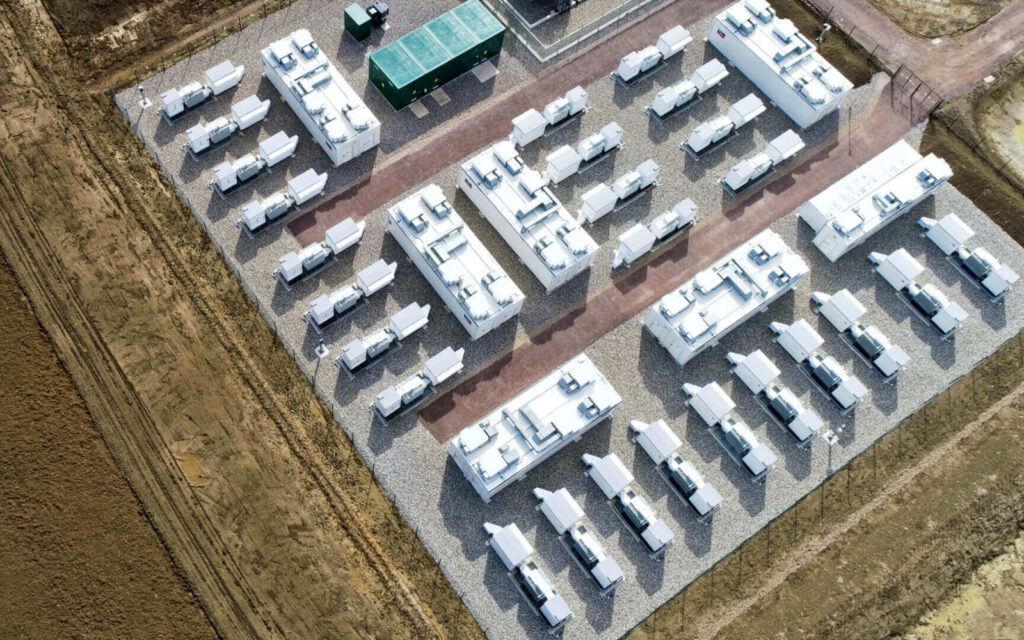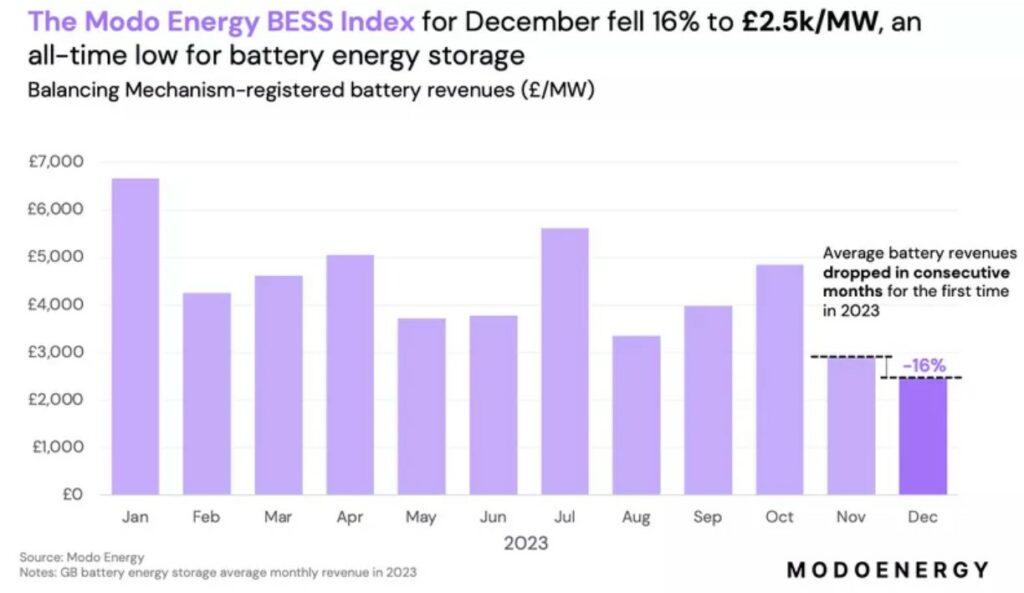
According to Modo Energy, average battery energy storage revenue for the balancing mechanism fell by 16% in December 2023 to £2.5k/MW.
The energy consultant confirmed that the fall was a continuation of frequency response revenues falling since the launch of the enduring auction capability, a mechanism designed to help deliver co-optimised procurement for day-ahead frequency response and reserve products, in November.
Interestingly, Modo’s research indicates that assets over 1.5 hours in duration earned around £3.3k/MW on average, whereas assets under 1.5 hours saw revenues of around £2.1k/MW.
This caps off what could be seen as a stutter in the battery energy storage market with average revenue levels for batteries having dropped by 67% year-on-year (YoY) to £51k/MW. You can find a monthly breakdown of the revenue levels below.

Why did battery revenues fall?
With these falling revenues, it is important to identify why this might be the case. But to start it is important to note that this fall in revenue was not exclusive to battery energy storage with frequency response revenues having dropped by 44% from November to £590/MW. Modo stated that this was the second consecutive month in which revenues fell by over 40%.
Modo also noted that batteries paid to perform dynamic regulation, a mechanism implemented to assist National Grid ESO in keeping frequency within operational limits, with net revenue from the high and low service dropping to -£250/MW, a £320/MW decrease from November.
This article was first published on Solar Power Portal’s sister publication Current±. To read the full article please click here.

